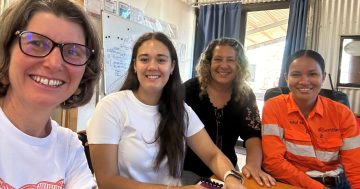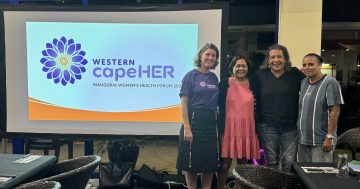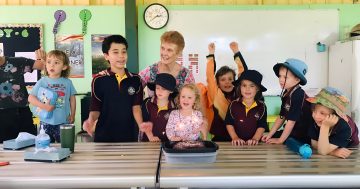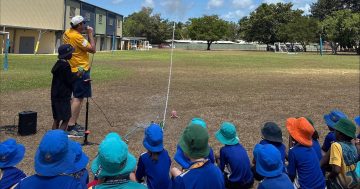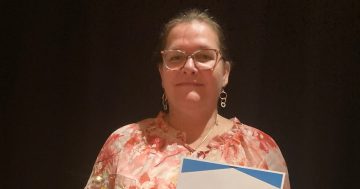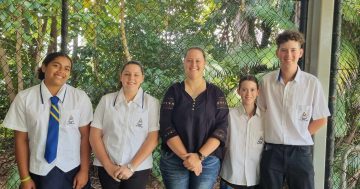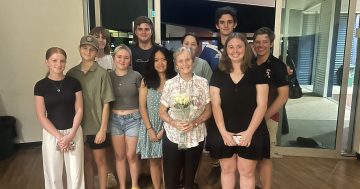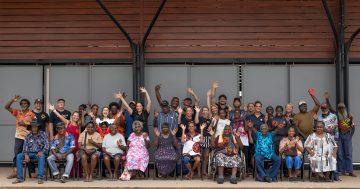
Western Cape College deputy principal Siobhan Wilson and Minnie King congratulate Chelsea Steele (centre) on being chosen for the guide’s front cover artwork. Photo: Supplied.
Western Cape College (WCC) and St Joseph’s Parish School are celebrating the launch of a culturally appropriate menstrual and puberty teaching guide aimed at bridging a significant gap in female biology education.
Mind Your Body, featuring artwork from selected WCC students, was unveiled last week, bringing eight years of research from the University of Queensland (UQ) to light.
Weipa local and UQ researcher Minnie King kickstarted the project when she noticed “inconsistencies” in period education.
“The launch is quite a profound thing, because it’s the first of its kind in this country – it’s student-led in a remote community with majority Indigenous populations,” she said.
“In the research, we looked at ACARA, which is the national curriculum body that sets the curriculum, and what we saw is it’s just so light on in this space.
“In schools, it’s up to the teachers; some teachers are more comfortable and more confident in this space – sometimes it might come down to the gender of a teacher, so there were all these inconsistencies in the education.”
Ms King said the community support had been outstanding, adding the guide could now be used to help young people all over the country.
“We’ve gone with an opt-out option in terms of students attending, and it’s been 99 per cent attendance,” she said.
“Clearly the community, the families, the carers and the schools see this as an important biological process that needs to be taught in a safe environment.
“Potentially, it can be adopted anywhere, so we’re really fortunate that the community was brave in putting their hands up and saying ‘you know what, we need this in our community, and this will benefit our kids’.”
UQ researcher Nina Lansbury said shame and stigma were two of the top reasons for the lack of knowledge.
“There are shame issues around it, where you feel you can’t ask questions and get more information, or even reach out and say ‘I’ve got these terrible cramps and I’m not feeling my best’,” she said.
“We were just blown away by the honesty of the students when we created the right conversations, and they had the right leaders in the room, culturally as well as educationally.
“Now we have this beautiful guide that’s online, free to download, and we’re hoping that up here across the Cape and the rest of Queensland, the teachers will reach for it, and it just makes it easier to have those conversations that might otherwise be a bit awkward.”


